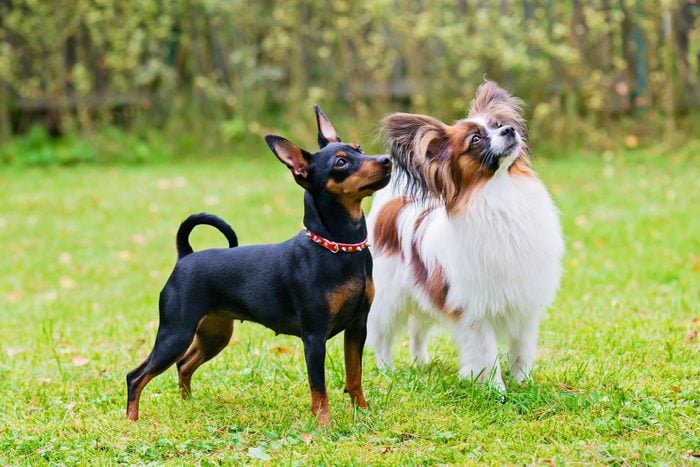Rottweilers are powerful, intelligent, and loyal dogs known for their protective nature and strong work ethic.
Originally bred as herding and guard dogs, they are now beloved companions, excelling in roles such as police work, search and rescue, and family protection.
Despite their tough appearance, Rottweilers are affectionate and devoted to their families, making them excellent companions for responsible owners.
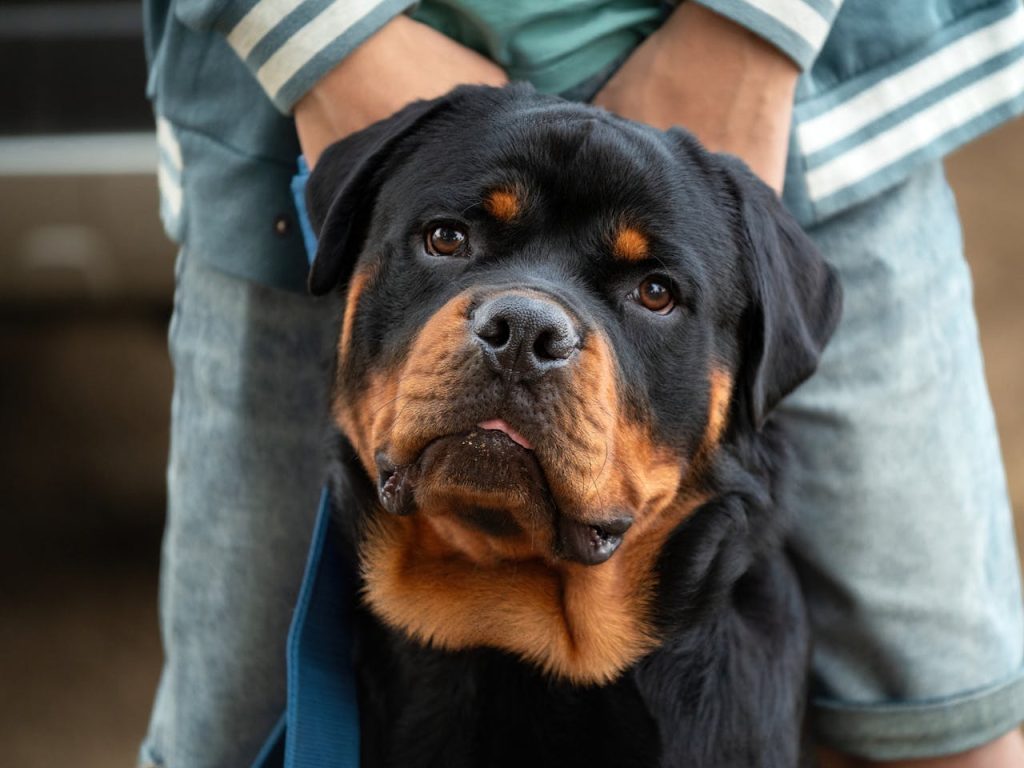
Table of Contents
History and Origin
The Rottweiler’s history dates back to the Roman Empire, where they were used as cattle-driving dogs and guard dogs for soldiers. As the Romans expanded their empire, these dogs traveled with them, eventually settling in the German town of Rottweil.
Over time, they became indispensable to butchers, herding and protecting livestock. This working background has shaped the Rottweiler into the strong, intelligent, and dependable breed we see today.
Why They Were Created
Rottweilers were initially bred for herding livestock and guarding valuables. Their strength and intelligence made them ideal for these tasks, and they were often used to pull carts and guard merchants’ money pouches.
Today, Rottweilers continue to work as police dogs, service animals, and search-and-rescue dogs, demonstrating their versatility and enduring usefulness.
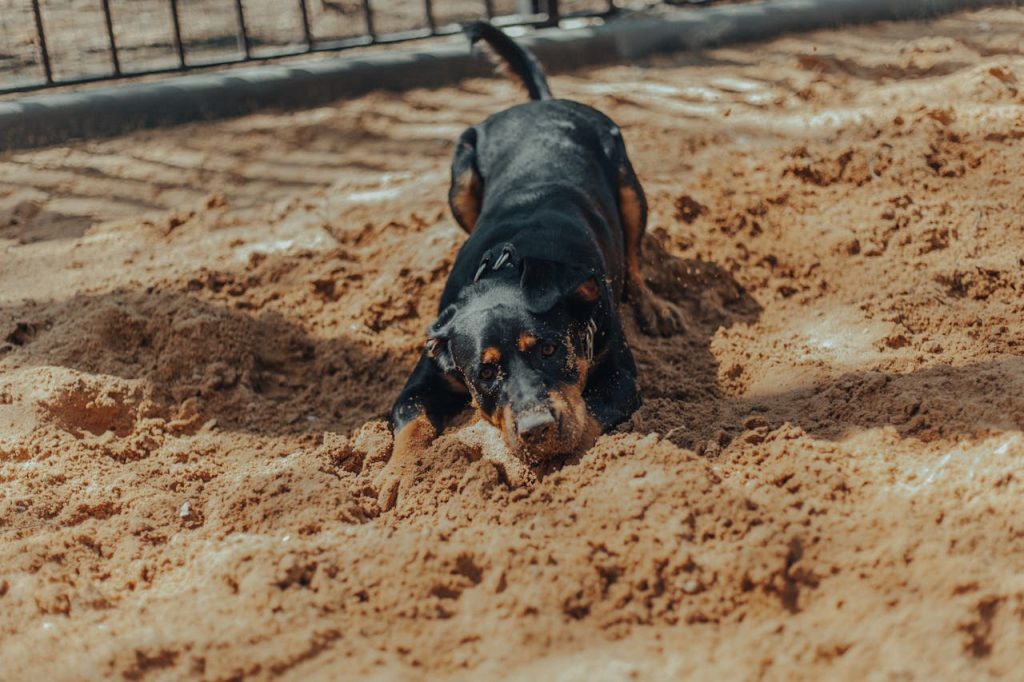
Physical Characteristics
Rottweilers are large, muscular dogs with a strong, well-proportioned build. They typically weigh between 80-135 pounds and stand 22-27 inches tall. Their coats are short, dense, and black with distinctive tan markings.
Their deep brown eyes and broad heads give them a confident yet approachable expression, while their sturdy frames reflect their powerful nature.
Temperament and Personality
Despite their reputation as fierce protectors, Rottweilers are known for their affectionate and loyal nature. They are confident, intelligent, and deeply devoted to their families.
While they are naturally protective, they are not aggressive by default—proper training and socialization help shape them into well-mannered and obedient companions. They thrive in environments where they receive firm leadership and consistent guidance.
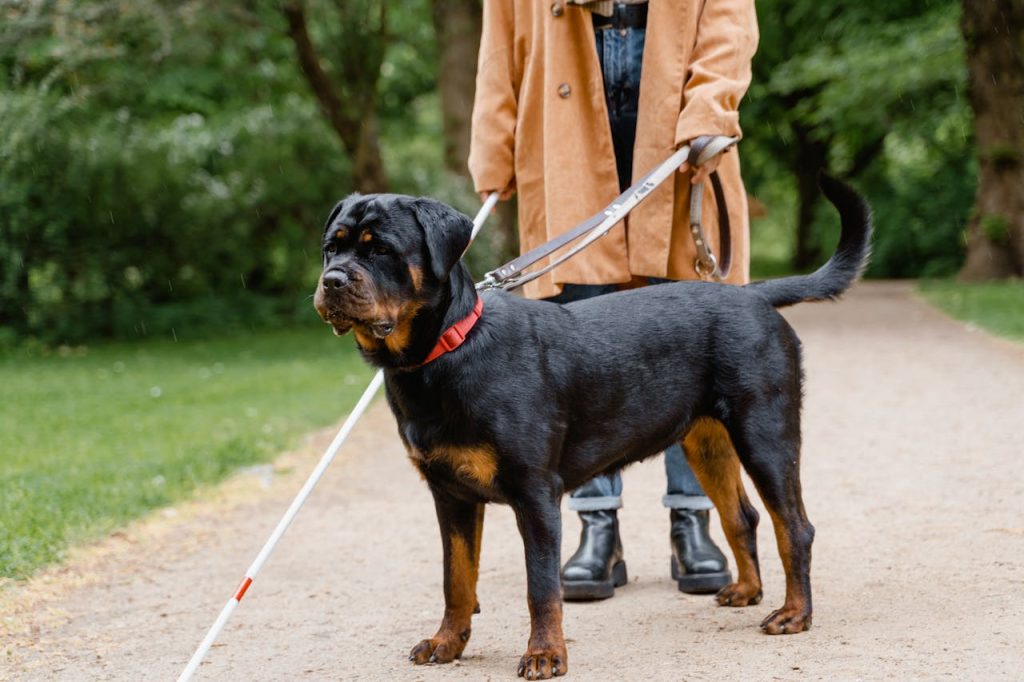
Bite Force and Jaw Strength
Rottweilers have one of the strongest bite forces among dog breeds, measuring around 328 PSI (pounds per square inch).
This powerful bite was historically useful for herding and guarding but also emphasizes the importance of proper training to ensure responsible behavior.
Choosing the Right Puppy
Selecting a Rottweiler puppy requires careful consideration. Look for reputable breeders who focus on temperament, health, and genetics.
Ensure the puppy is well-socialized and exhibits confidence rather than fear or aggression. For a complete guide on selecting the best puppy, check out our Guide to Choosing Your Dream Puppy.
Intelligence and Training
Rottweilers are highly intelligent and respond well to training when handled correctly. They require a firm yet positive approach, as harsh methods can lead to fear or aggression.
Early socialization and obedience training are crucial to ensuring they grow into well-behaved adults. They excel in tasks that challenge their intelligence, such as agility, tracking, and protection work.
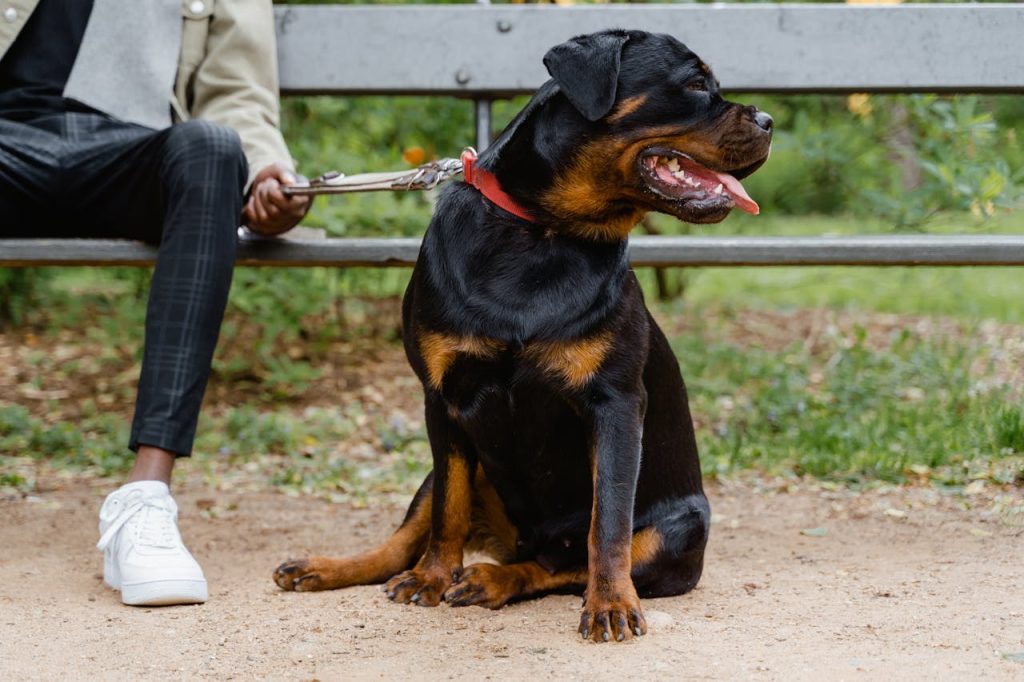
Exercise and Energy Levels
Rottweilers are active dogs that require regular exercise to maintain their physical and mental well-being. Daily walks, playtime, and strength training activities are essential.
They enjoy interactive games like fetch, obstacle courses, and tug-of-war. Without sufficient exercise, they may develop destructive behaviors due to boredom.
Diet and Nutrition
A Rottweiler’s diet should be high in protein and balanced with essential vitamins and minerals to support their muscular build and overall health. High-quality dry food, raw diets, or a combination of both can be suitable. It is important to monitor portion sizes, as Rottweilers can be prone to obesity.
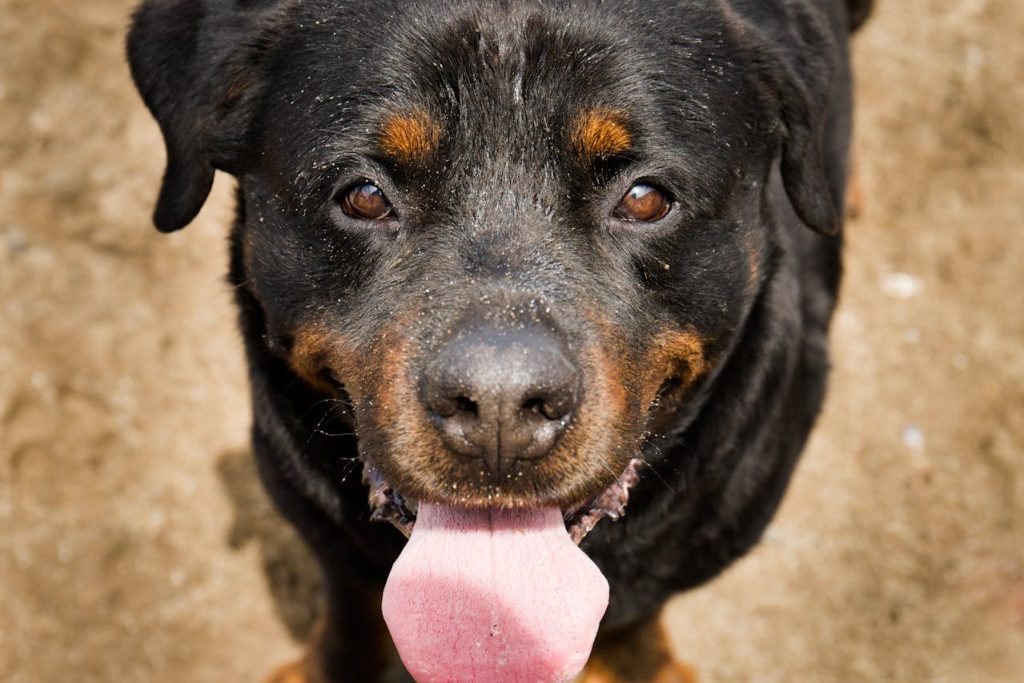
Health and Lifespan
Rottweilers typically live between 9-12 years. While they are generally robust dogs, they are prone to certain health issues, including:
- Hip and elbow dysplasia
- Heart conditions (aortic stenosis)
- Obesity
- Osteosarcoma (bone cancer)
- Bloat (gastric torsion) Regular vet check-ups, a healthy diet, and consistent exercise can help minimize health risks and extend their lifespan.
Grooming and Coat Care
Rottweilers have short, low-maintenance coats that require minimal grooming. Weekly brushing helps remove loose hair and keeps their coat healthy.
Bathing should be done as needed, and routine nail trimming, ear cleaning, and dental care are essential for overall hygiene.
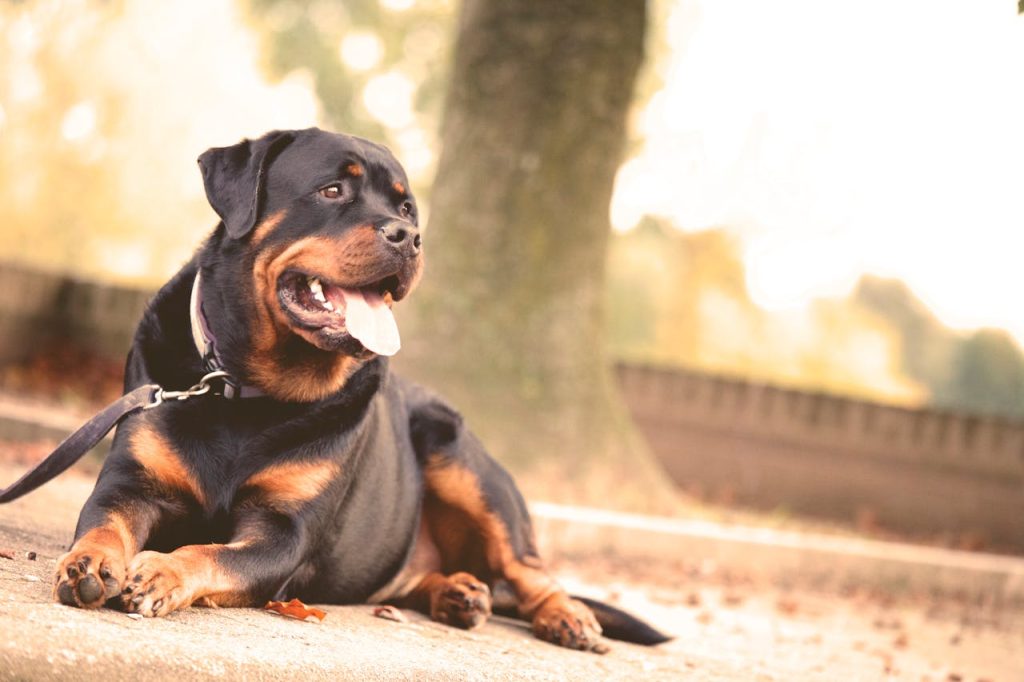
Working Roles and Versatility
Due to their intelligence, strength, and loyalty, Rottweilers excel in various working roles, including:
- Police and military work
- Search and rescue missions
- Guarding and protection
- Service and therapy roles
- Competitive dog sports Their versatility and eagerness to work make them an ideal breed for specialized tasks.
Fun Facts About Rottweilers
- Rottweilers were one of the first breeds used as guide dogs for the visually impaired.
- They were nicknamed “Rottweil Butcher’s Dogs” because they helped transport meat carts in Germany.
- Rottweilers are known for their “leaning” behavior, a sign of affection towards their owners.
Challenges of Owning a Rottweiler
While Rottweilers make loyal and loving pets, they come with challenges, including:
- Strong-willed nature: Requires a confident owner with leadership skills.
- Need for training and socialization: Without proper guidance, they can develop behavioral issues.
- Size and strength: Not ideal for small living spaces or inexperienced owners.
- Potential for aggression: Requires responsible ownership and training to ensure they remain well-mannered.
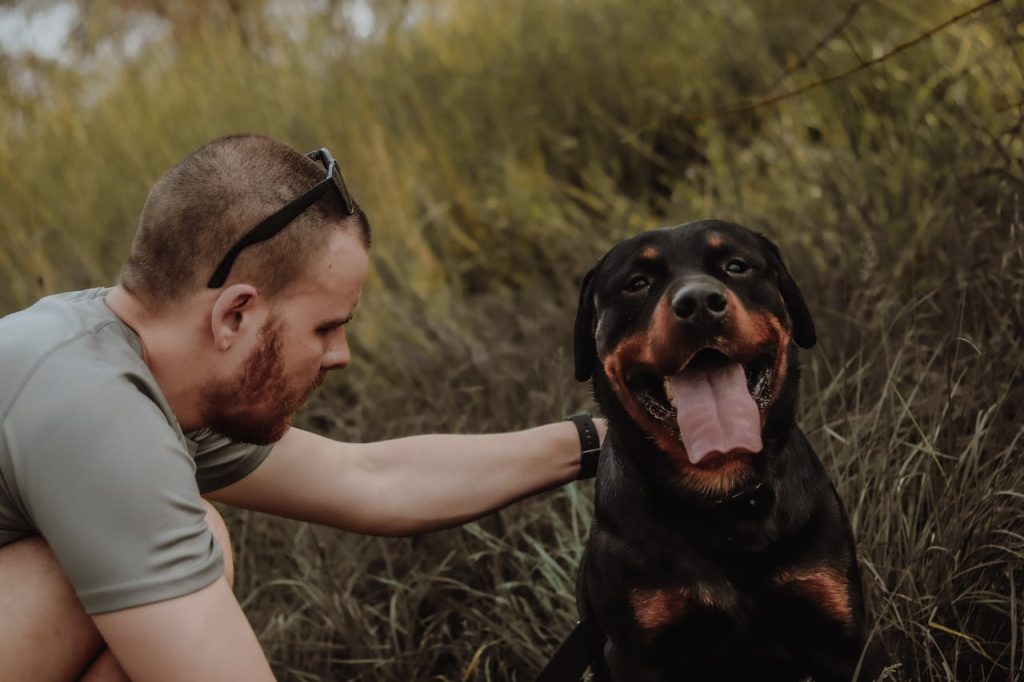
Tips for Potential Owners
If you’re considering a Rottweiler, be prepared for a strong, intelligent dog that requires structure and leadership.
They thrive best with experienced owners who can provide consistent training, socialization, and plenty of exercise. Their loving and protective nature makes them excellent family dogs when raised correctly.
Rottweiler Puppies: What to Expect
Rottweiler puppies are energetic, playful, and require early training to prevent stubbornness. They need socialization from an early age to develop into well-adjusted adults.
Expect a high-energy pup that will require consistent discipline, mental stimulation, and plenty of affection.
Breeding and Whelping
Breeding Rottweilers should be done responsibly, considering health screenings and genetic background. A typical litter consists of 6-12 puppies. Proper care, nutrition, and monitoring during pregnancy and whelping ensure a healthy litter and mother.
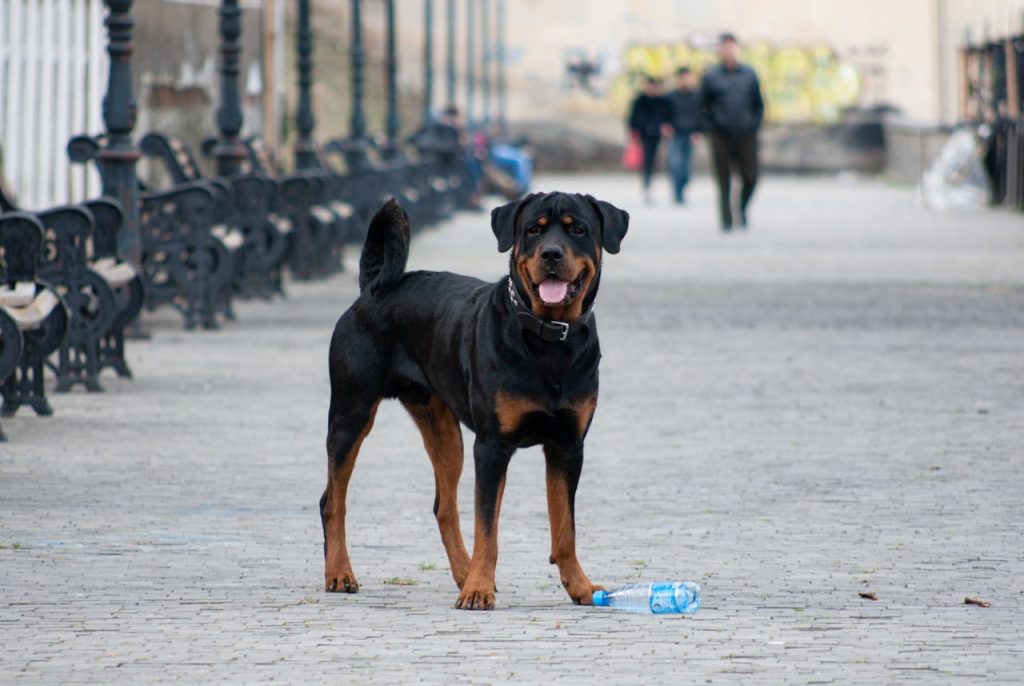
Final Thoughts
Rottweilers are powerful yet affectionate dogs that thrive in the right hands. With proper training, socialization, and care, they make excellent family companions and working dogs.
If you’re interested in learning about other wonderful breeds, check out our guides on Beagles, Bulldogs, Poodles, German Shepherds, Golden Retrievers, French Bulldogs, and Labrador Retrievers to explore more loyal and intelligent companions.
FAQs
Is a Rottweiler a good family dog?
Yes, Rottweilers can be excellent family dogs when properly trained and socialized. They are loyal, protective, and affectionate with their owners.
What is a Rottweiler’s weakness?
Rottweilers can be prone to joint issues, obesity, and heart conditions. They also require firm training and leadership to prevent behavioral issues.
What is the personality of a Rottweiler?
Rottweilers are confident, intelligent, and loyal. They are naturally protective but can be gentle and affectionate with their families.
Do Rottweilers have high IQ?
Yes, Rottweilers are highly intelligent and rank among the smartest dog breeds. They excel in obedience training, problem-solving, and working roles.


